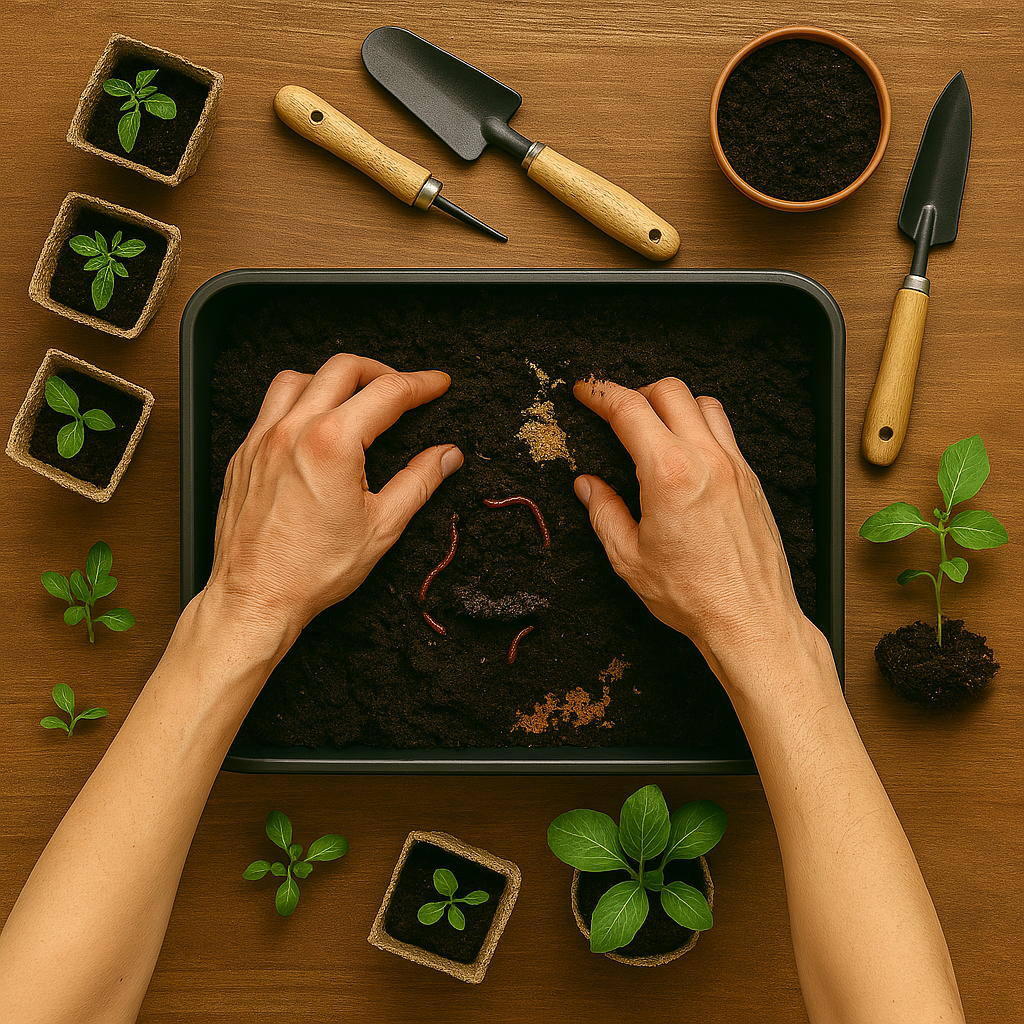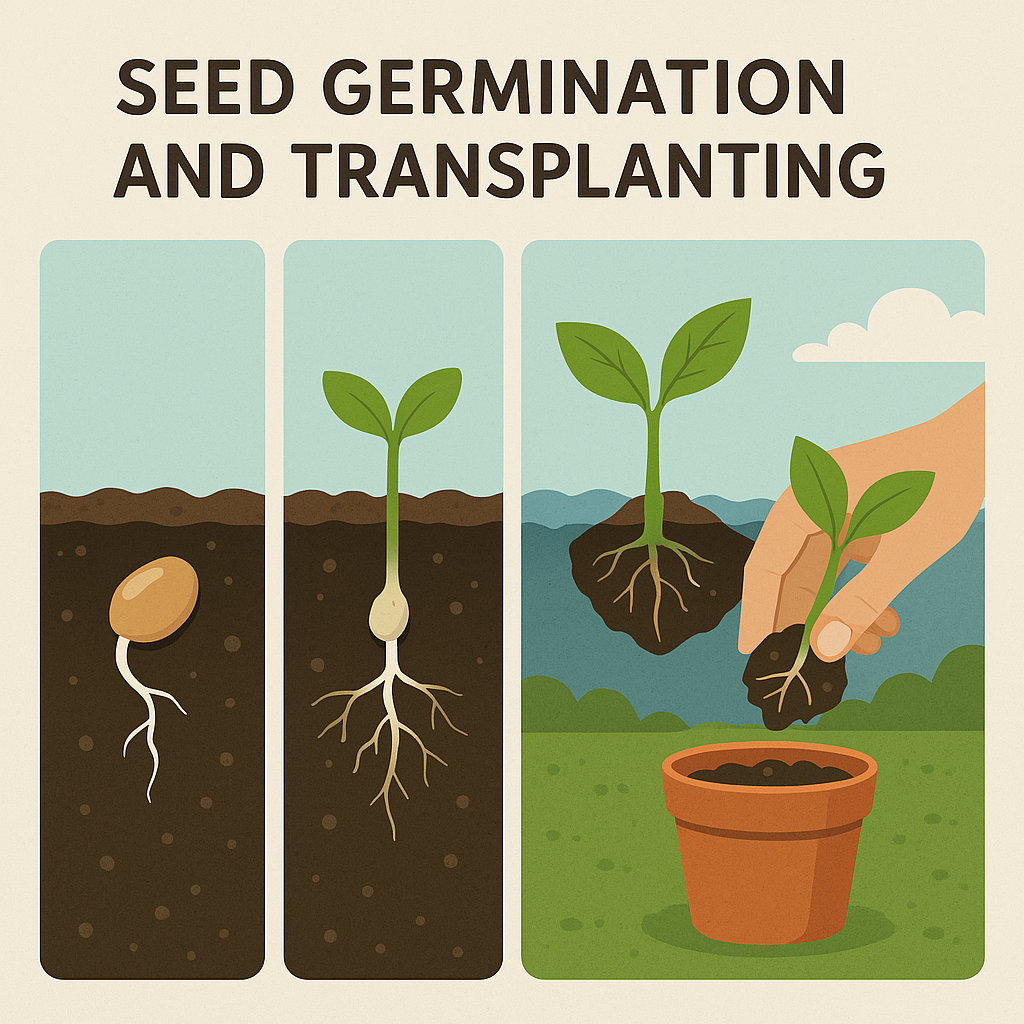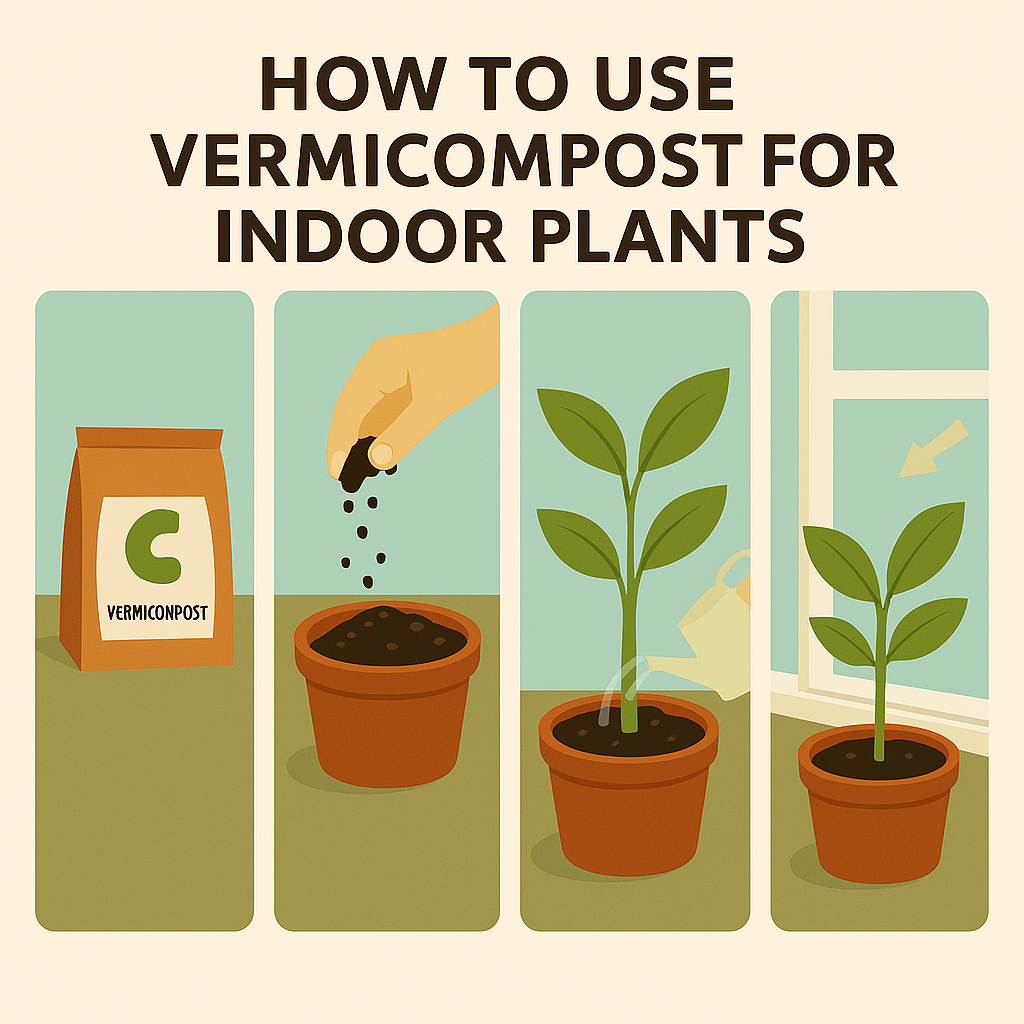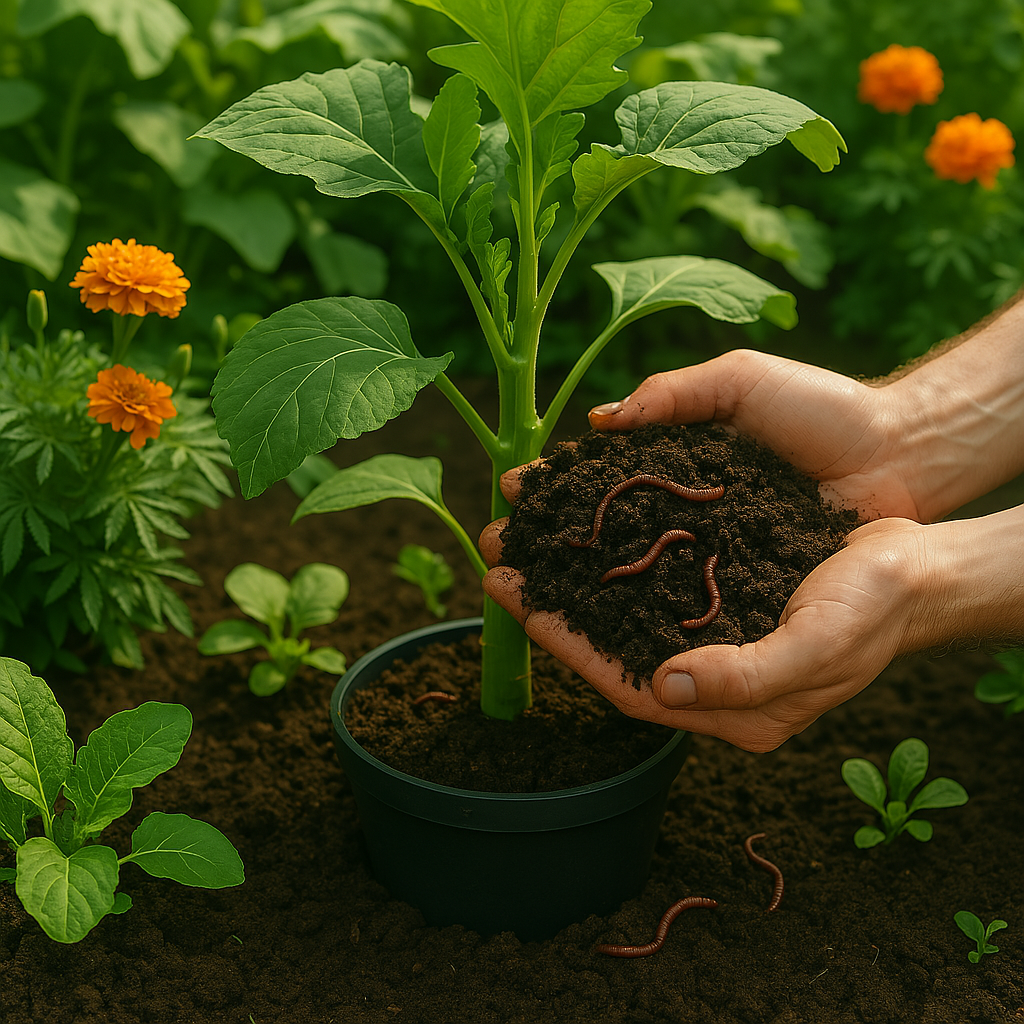Vermicompost for Plants – A Complete Guide to Organic Growth and Soil Health
In the world of sustainable agriculture and eco-friendly gardening, vermicompost for plants has emerged as a game-changer. Known as the “black gold” of gardening, vermicompost for plants is not just a fertilizer—it is a complete organic solution that improves soil fertility, stimulates plant growth, and strengthens immunity against diseases. This article explores everything you need to know about using vermicompost for plants to enhance plant health naturally and effectively.
What is Vermicompost?
vermicompost for plants is the nutrient-rich organic manure derived from the breakdown of organic matter by earthworms, particularly species like Eisenia fetida and Eudrilus eugeniae. Earthworms consume decaying plant material, kitchen waste, and biodegradable substances, converting them into fine, odorless, humus-rich compost that is teeming with beneficial microbes.
Nutrient Profile of Vermicompost
A major reason why vermicompost for plants is preferred for plants lies in its high nutrient content. On average, good-quality vermicompost for plants contains:
- Potassium (K) levels range from 1.2% to 1.8%, which strengthens plant cell walls and increases disease resistance.
- Micronutrients include calcium, magnesium, zinc, copper, iron, and manganese.
- Beneficial microorganisms include nitrogen-fixing bacteria and mycorrhizal fungus.
Benefits of Vermicompost for Plants
1. Enhances Soil Structure and Aeration
Vermicompost for plants enhances soil texture, boosting water retention and aeration. This creates a better root environment, particularly for potted plants and dense clay soils.
2. Promotes Rapid and Healthy Growth
The humic acids and plant growth regulators present in vermicompost for plants act as natural stimulants, encouraging faster germination, healthier roots, and vigorous foliage development.
3. Strengthens Disease Resistance
Plants grown in vermicompost for plants-enriched soil have shown stronger immunity against common fungal and bacterial infections, including root rot, damping off, and blight.
4. Safe for All Plants
Unlike chemical fertilizers, vermicompost for plants is non-toxic and pH balanced. It can be used for flowering plants, vegetables, herbs, indoor foliage, fruit trees, and even succulents without risk of burning roots.
5. Eco-Friendly and Sustainable
As a completely organic fertilizer, vermicompost for plants reduces the reliance on synthetic fertilizers and repurposes organic waste—making it a sustainable choice for both home gardeners and organic farmers.
How to Use Vermicompost for Plants
1. Soil Amendment Before Planting
Mix 2 to 3 kg of vermicompost for plants with every 10 kg of garden soil while preparing your pots, beds, or grow bags. This ensures nutrients are readily available from the start.

2. Top Dressing for Established Plants
Apply 100 to 200 grams of vermicompost for plants around the base of plants every 20–30 days, and gently rake it into the topsoil. Water the plant immediately afterward for better absorption.
3. In Potting Mixes
For indoor plants, use a mix of:
- 40% garden soil
- 30% vermicompost
- 30% cocopeat or sand
This combination supports drainage, aeration, and long-term nutrient supply.
4. Seed Germination and Transplanting
When sowing seeds or transplanting saplings, add a small handful of vermicompost for plants directly into the pit or container to promote root establishment and reduce transplant shock.

Best Plants to Use Vermicompost With
Vermicompost is universally beneficial, but some plants respond especially well:
- Vegetables: Tomatoes, spinach, brinjal, capsicum, okra, cabbage
- Flowers: Roses, marigolds, petunias, hibiscus, zinnias
- Fruits: Papaya, guava, banana, mango, lemon
- Indoor plants: Money plant, peace lily, snake plant, spider plant
- Herbs: Tulsi, coriander, mint, lemongrass, oregano
Vermicompost Application Frequency Guide
| Plant Type | Dosage per Plant | Frequency |
|---|---|---|
| Vegetables | 150–200g | Every 20–25 days |
| Flowering Plants | 100–150g | Monthly |
| Fruit Trees | 1–2 kg | Every 45 days |
| Indoor Plants | 50–100g | Every 30 days |
| Lawn/Grass | 5–10 kg per 100 sq ft | Quarterly |
Precautions When Using Vermicompost
- Avoid overuse: Excessive vermicompost for plants can lead to waterlogging due to high moisture retention.
- Store properly: Keep it in a cool, dry, shaded place to preserve microbial life.
- Ensure it’s matured: Unfinished compost can generate heat and harm roots.
Difference Between Vermicompost and Other Organic Fertilizers
| Feature | Vermicompost | Cow Dung Manure | Compost |
|---|---|---|---|
| Nutrient Density | High | Medium | Medium |
| Odor | Mild/Earthy | Strong | Varies |
| Microbial Activity | Very High | Moderate | Moderate |
| Application Safety | Safe for roots | Risk of burning if fresh | Depends on quality |
| Decomposition Time | Fast (with worms) | Slow | Medium |
Homemade Vermicompost: A Quick Overview
For gardeners looking to make their own vermicompost for plants:
- Container: Use a ventilated bin or clay pot.
- Bedding Material: Dry leaves, shredded newspaper, cardboard.
- Organic Waste: Vegetable peels, fruit scraps, tea leaves.
- Add Earthworms: Ideally Eisenia fetida.
- Maintain Moisture: Keep the medium moist but not soggy.
- Harvest Time: Ready in 45–60 days with dark, crumbly texture.
Where to Buy Quality Vermicompost
Ensure you’re buying authentic, organic vermicompost for plants free from chemicals or adulteration. Look for:
- Earthy smell, not foul
- Dark brown or black color
- Presence of worm castings
- Branded, certified packaging
Trusted suppliers like bharatkhaad.com offer lab-tested, farm-produced vermicompost for plants ideal for all plant types.
How to use vermicompost for indoor plants

Using vermicompost for indoor plants is a fantastic way to boost plant health naturally. Here are the best methods to apply it effectively:
🌿 1. Top Dressing
- How to do it: Remove the top 1 inch of potting soil and add a ½ inch layer of vermicompost.
- Frequency: Every 15–30 days during the growing season.
- Why: Provides a slow, steady release of nutrients and beneficial microbes2.
🌱 2. Mixing with Potting Soil
- Mix 1 part vermicompost to 3 parts potting soil.
- When to use: While repotting or planting new indoor plants.
- Benefits: Improves soil texture, aeration, and water retention3.
🌾 3. Seed Starting Mix
- Blend: Combine vermicompost with cocopeat (1:1 ratio).
- Use: For germinating seeds in trays or small pots.
- Advantage: Boosts early root development and seedling vigor2.
💧 4. Worm Tea (Liquid Fertilizer)
- How to make: Soak 2 cups of vermicompost in 5 liters of water for 24 hours, stir occasionally.
- Application: Water your indoor plants with this nutrient-rich tea every 2–3 weeks.
- Why: Delivers nutrients quickly and enhances microbial activity.
⚠️ Tips & Cautions
- Do not use 100% vermicompost as potting soil; it lacks structure and drainage.
- Avoid overwatering after applying vermicompost to prevent root rot.
- Combine with other organic inputs like neem cake or seaweed extract for best results.
Best organic fertilizer for vegetable garden
🌿 BharatKhaad Organic Garden Soil (Spent Mushroom Substrate – SMS)
Key Features:
- Rich in nutrients: Naturally high in Nitrogen (1.16%), Phosphorus (62.31 mg/kg), Potassium (1544.75 mg/kg), and Organic Carbon (5.19%).
- Base material: Spent Mushroom Substrate (SMS), a sustainable and nutrient-dense organic input.
- Soil benefits:
- Improves soil structure and aeration
- Enhances water retention
- Supports beneficial microbes
- Fights soil-borne diseases
- Application: Mix 500g of SMS with 5kg of soil or compost for vegetables, flowers, fruits, saplings, and ornamental plants.
Price: ₹399 for 4 kg Shipping: Delivered in 5–7 days across India
🌱 Why Choose BharatKhaad?
- Eco-friendly and sustainable
- Long-term soil health improvement
- Ideal for vegetables like tomato, cucumber, spinach, broccoli, and more
- Trusted by farmers, agronomists, and home gardeners
Vermicompost benefits for flowering plants
Vermicompost is a powerhouse organic fertilizer that offers exceptional benefits for flowering plants, helping them bloom more vibrantly and stay healthier longer. Here’s how it supports your flowering garden:
🌸 Top Benefits of Vermicompost for Flowering Plants
- Boosts Flower Production
- Rich in potassium, which enhances flower color, size, and longevity.
- Encourages more buds and blooms by supplying balanced nutrients like nitrogen, phosphorus, and micronutrients.
- Improves Soil Structure
- Enhances aeration and drainage, preventing root rot and compaction.
- Increases water retention, which reduces the need for regular irrigation.
- Enhances Root Development
- Promotes strong root systems, which are essential for nutrient uptake and flower support.
- Provides Beneficial Microbes
- Vermicompost is teeming with beneficial bacteria and fungi that suppress soil-borne diseases and improve nutrient availability3.
- Regulates Soil pH
- Helps maintain an optimal pH range for flowering plants, especially in pots or containers.
- Slow-Release Nutrients
- Slow Release Nutrients
- Provides a consistent supply of nutrients over time, lowering the likelihood of overfertilization and nutrient burn.
- Eco-friendly and safe.
- 100% organic, non-toxic, and suitable for use with children and pets.
- Reduces dependency on chemical fertilizers while promoting sustainable farming.
🌼 How to Use Vermicompost for Flowering Plants
- Top Dressing: Use 1-2 handfuls at the base of each plant every 2-4 weeks.
- Soil Mix: Mix 1 part vermicompost with 3 parts potting soil when planting.
- Liquid Tea: Soak 1 cup of vermicompost in 1 liter of water for 24 hours. Use as a foliar spray or root drench every 2–3 weeks.
Natural ways to boost plant growth using vermicompost
🌿 Natural Ways to Boost Plant Growth Using Vermicompost
1. Top Dressing
- How: Sprinkle 1–2 inches of vermicompost around the base of plants.
- Why: Provides a slow-release nutrient source and improves soil structure.
- Best for: Flowering plants, vegetables, and fruit trees.
2. Soil Amendment
- How: Mix 1 part vermicompost with 3–4 parts garden soil or potting mix.
- Why: Enhances microbial activity, aeration, and water retention.
- Best for: Raised beds, containers, and transplanting.
3. Seed Starting Mix
- How: Blend vermicompost with cocopeat or compost (1:1 ratio).
- Why: Encourages strong root development and seedling vigor.
- Best for: Herbs, vegetables, and flowering annuals.
4. Worm Tea (Liquid Fertilizer)
- How To: Soak 1 cup of vermicompost in 5 litres of water for 24 hours. Stir occasionally.
- Why: Delivers nutrients quickly and boosts microbial life.
- Use: As a foliar spray or root drench every 2–3 weeks.
5. Mulching
- How: Apply a thin layer of vermicompost over the soil surface.
- Why: Retains moisture, suppresses weeds, and feeds the soil.
- Best for: Summer crops and moisture-loving plants.
6. Compost Booster
- How: Add vermicompost to your compost pile or bin.
- Why: Speeds up decomposition and enriches the final compost.
- Best for: Home composting systems.
7. Lawn Application
- How: Spread a thin layer (¼ inch) over the lawn and water well.
- Why: Improves grass health and soil fertility.
- Best for: Organic lawn care.
🌱 Bonus Tip: Combine with Other Natural Inputs
- Neem cake: For pest resistance
- Bone meal: For phosphorus boost
- Seaweed extract: For micronutrients and growth hormones
Conclusion
Using vermicompost for plants is one of the most effective ways to build soil health, reduce chemical inputs, and grow vibrant, thriving plants. Whether you’re a home gardener or a commercial farmer, incorporating vermicompost for plants into your plant care routine can transform your yields and support long-term sustainability.
1. FAQ Section
Q1. Can I use vermicompost every day for my plants?
A: No, vermicompost should be applied once every 20–30 days to avoid nutrient overload.
Q2. Does vermicompost attract pests?
A: Properly processed vermicompost does not attract pests. It has no foul smell and is safe for indoor use.
Q3. Can I mix vermicompost with chemical fertilizer?
A: Yes, but it’s recommended to rely on organic inputs alone for better soil health and long-term sustainability.
📢 Want to produce healthier, quicker, and greener plants?
Shop premium-grade, lab-tested Vermicompost from BharatKhaad.com at the best price today and get free delivery on bulk orders!
Also checkout organic fertilizer for better growth-:
Buy Organic Vermicompost – 100% Natural Soil Booster for 3X Growth
Bharat Bio Gold – 100% Organic Fertilizer for 3X Crop Yield
Top 3 Benefits of Coco Peat | Organic & Eco-Friendly Growing Medium
Top 10 Indoor Plants – Stylish, Easy, Air-Purifying
Top 5 Mitti Pots for Healthy Cooking | Eco-Friendly Clay Cookware
Top 7 Ceramic Pots for Home Décor | Elegant & Durable Planters
Top 5 Colorful Cemented Pots for Garden & Home
Top 5 Green Grow Bags for Gardening – Reusable & Eco-Friendly
Top 10 Decorative Plant Pots – Stylish & Durable Options
Mustard Cake Fertilizer – 100% Organic Plant Booster for Bigger Blooms
Vermiwash – 100% Organic Liquid Fertilizer for 2X Plant Growth
Cold-Pressed Neem Oil – 100% Organic Insect Control for 30+ Pests
BharatKhaad Organic Bone Powder – 2X Root & Flower Growth Naturally
Neem Khali – 100% Organic Pest & Soil Solution for Healthier Crops

